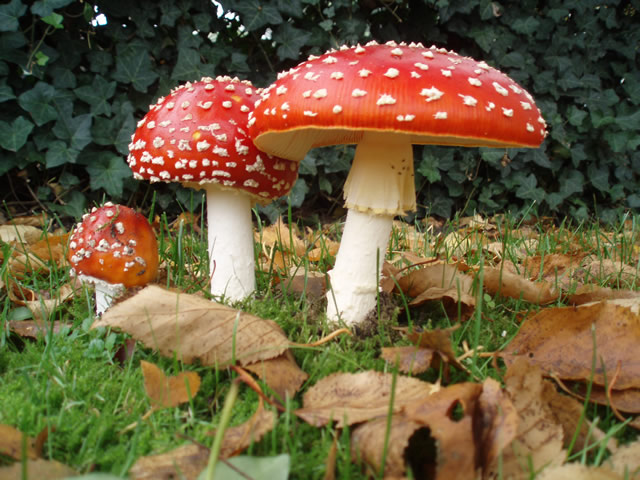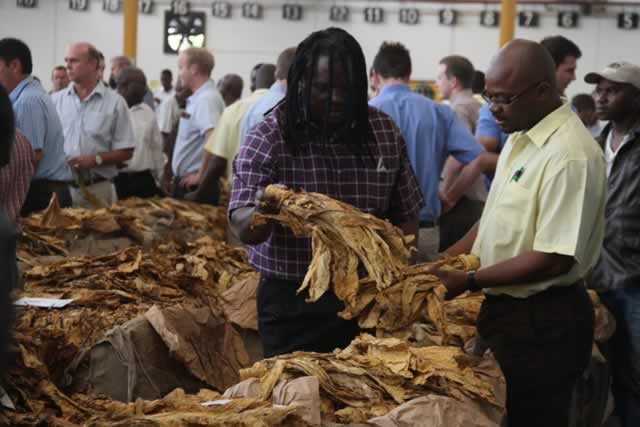Learning to obey time


Mbuya VaMandirowesa knew when the mushrooms would come up and where to find them, and also the edible ones
Sekai Nzenza on Wednesday
When we were growing up in the village, we did not worry or think about time. We did not have a clock.
The sun told us what to do. My mother said the sun should never rise before you do. In those days, everything we did was decided by seasons.
The cicadas sang to tell us rain was imminent. When the rains were late my grandmother, Mbuya VaMandirowesa and the elders, summoned spirit mediums and they paid libations around the muchakata tree to ask the ancestors for rain. In November the rains came.
We danced and sang: “Mvura ngainaye tidye mapudzi — Let it rain, so we can eat pumpkins.”
At night we heard frogs joining our praise songs to the ancestors. Within weeks of the rain falling, the once dry countryside was green.
Trees had new leaves and the birds sang. The squirrels were out in the sun. The Save River flowed, taking away all the dry debris and dust to the Indian Ocean.
Our cows grew fatter.
Women in our compound and in other villages shared and exchanged groundnut and pumpkin seeds.
Before sunrise we ploughed the fields and sowed maize, sorghum and groundnuts. The crops came up competing with the weeds. For weeks, we pulled the weeds out.
Soon after a certain type of rain, Mbuya said the wild mushrooms would be out by now. She knew when the mushrooms would come up and where to find them. She led a group of women to the hills and when the sun was right above our heads, they arrived back with baskets full of mushrooms.
Mbuya carefully examined the mushrooms and threw away all the poisonous ones.
My mother then boiled and salted the rest of the mushrooms and sun-dried them on the granite rocks. We learnt all the mushroom names and could tell the time huvhe, the big umbrella mushroom would grow.
Only people with luck found those ones. It was all about knowing the right temperature, rain and soil for various types of mushrooms to grow.
If we got the times wrong, which we often did, we would find the big mushrooms already rotten and eaten by centipedes, beetles and other insects. Mbuya scolded us. “Don’t you know the time to go and collect the mushrooms?” she asked.
Friday was chisi, a special rest day for us to remember and honour the ancestors. We did not work in the fields then. When all the weeding was over, we rested our aching backs and waited for the end of the rains. Then harvest time began.
We spread the peanuts, red sorghum — zviyo, mapfunde and mhunga — to dry in the sun at the flat granite rocks to dry. Everything obeyed the natural rhythm of time and got dry at its own pace.
While my older brothers and sisters did the harvesting, I spent all day guarding the crops from monkeys, goats, baboons and birds at the granite rocks.
I was alone and I recall not being lonely. Time just moved; I learnt to keep busy all day until sunset.
I sat under the shade of a tree for hours on end and kept myself busy.
There were no books to read. There was plenty of play to be done. Sometimes I drew figures in the sand, made bracelets from the bark of a tree and wove small worthless baskets.
I watched ants building their castles and talked to a snail taking forever to climb a rock while leaving a slimy trail behind it. I helped cow dung beetles, zvitutamangoro; gently push their balls of manure. I listened to birds singing and tried to identify the type of bird from its song.
With the clay left over from my mother’s pottery making, I moulded dolls and created a village compound complete with huts, people, dogs and cattle. I talked to my little clay people and made them fall in love, fight or dance.
But, sometimes I just lay on my back and watched eagles flying above as they searched for unsuspecting prey with their sharp cruel eyes.
I sang to myself, talked to the ants, bees, butterflies, grasshoppers and other insects to avoid falling asleep.
Certain sounds of the day would tell me that it was time to gather the grain and home. Some clouds could tell me that it would rain before midday and other clouds would show that they were not carrying rain at all but would do so, by late evening.
When the harvest was over and our granaries were full, my mother and all the women in the compound spent seven days brewing beer to thank the ancestors for the good harvest, goho rakanaka. The beer was strong and intoxicating.
Later on in the dry season, muchirimo, the elders performed kurova guva — the ceremony to reconcile the spirit of the dead person with those who went before him with those who remain.
They brewed plenty of beer, killed a beast and all night they danced, played the drum and mbira. At dawn, they formed a single file to the grave, varoora carrying beer pots on their heads.
They poured it on the grave, ululated, clapped and called upon the spirit of the dead to cease wandering in the bush and come home to guide and protect the living.
The ancestor knew the time to return to the people as a guardian spirit.
When the moon was full, we followed the sound of the drum and danced until dawn. We played many games like, “choose your beloved (sarura wako)”, chinungu, gwendere gwendere, jejejeje jerekuje, chidhange chidhange, dzwitswi, vasikana iwe, pfukumbwe, zvirahwe and many others. During the time when the moon was dead and the night was so dark that you could not see your hand, Mbuya VaMandirowesa told us stories about the time when animals could talk. She said the world was different before the white man came.
On those dark nights, Mbuya also told us to stay inside because such nights belonged to witches and ghosts.
The witches rode hyenas in search of fresh graves. They knew the time to dig up freshly buried people and eat them at ceremonies attended by hyenas, owls, snakes, and zvidhoma — monkey-like gnomes. Through the valley and over the mountains, the bright lights of angry ghosts moved around. The very bright big lights belonged to the ghosts of murdered people.
When November, the sacred month of the goat — mwedzi waMbudzi — arrived no ceremonies could take place. Getting married or performing any rituals would anger the ancestors.
The women shelled nuts and made peanut butter. Men thatched huts and poured manure on the fields in preparations for the rains. How long we would wait was determined by God, Mwari and the ancestors.
Everything around us moved at a pace determined by the seasons. But, there were times when we were forced to race against time. If the rains were coming and we were still out in the valley herding cattle, we ran home to beat the rains. We rushed to cross the river before it flooded.
At school, the teachers introduced time to us. Even though we did not have clocks at home, we learnt to arrive at assembly on time.
Failing to do so incurred a beating with a stick from the headmaster.
One day my father came home from Kwenda mission armed with the village’s first clock. He said we should learn to obey time and hurry to keep up with the white man because he knew so much about time and how that worked very well for him in his business.
“Do not listen to anyone telling you that there is no hurry in Africa,” my father said. My father hung the clock on the wall of our hut and told us to watch it. And obey it.
“Stop gazing at the sun, let the clock tell you when to get up, when to fetch water and when to plough the field,” he said. That did not work.
The clock was eaten by rats and it died. We went back to looking at the sun as before.
At boarding school, everything was done according to time. No more staring at the sun to tell us what to do. The bell rang at 6am.
Communal showers at 6:15. Everything was done in quarterly or hourly intervals.
Time was forcing us to change our cultural habits. Over the years and through experience, we have learnt to keep time in business. But, in our social lives, we still have a long way to go.
We no longer ignore that in today’s fast moving world, everything is measured by the progress of those little hands around the dial.
We have wrist-watches, clocks in the car, on the radio, on television, on phones, computers and on everything.
And yet, in the rat race dictated by time, there is room to allow the environment to dictate time. Back here in the village, we are forced to step back and see the slow glory of the rising sun and its ever changing colours.
Although the days we looked to the sun to tell us what to do are gone, we must still pause, examine the soil, look to the sky, to the trees, and know that there is still room for the environment to tell us what to do and when.
Down here in the village, the sound of the cicadas is telling us that the rain will come end of October.
Dr Sekai Nzenza is the CEO of Rio Zim Foundation. She writes in her personal capacity.








Comments